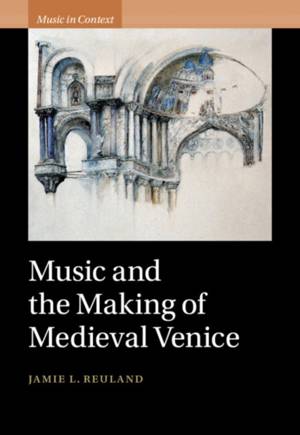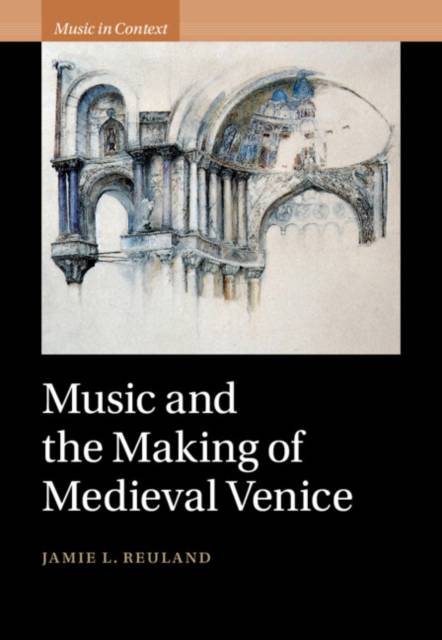
- Afhalen na 1 uur in een winkel met voorraad
- Gratis thuislevering in België vanaf € 30
- Ruim aanbod met 7 miljoen producten
- Afhalen na 1 uur in een winkel met voorraad
- Gratis thuislevering in België vanaf € 30
- Ruim aanbod met 7 miljoen producten
Zoeken
€ 158,95
+ 317 punten
Omschrijving
Music played an essential part in raising the city of Venice and in founding the empire on which its fortunes would depend. This book focuses on a set of musical projects - played out in liturgy and civic ritual - that formed the city's history and framed and interpreted its unique material culture as it was in the process of taking shape. Jamie L. Reuland shows the state's most imaginative musical endeavors bound up with legal culture, stemming from the chancery's engines of historiography, or situated within the rich material environment of relics and reliquaries, mosaics and wall paintings, icons and statues. Arguing for music's technical ability to fabricate a sense of place and give form to history, Reuland recovers Venice's fascinating early propensity for a statecraft of the imagination, the consequences of which would be the better-known history of its material decay.
Specificaties
Betrokkenen
- Auteur(s):
- Uitgeverij:
Inhoud
- Aantal bladzijden:
- 300
- Taal:
- Engels
- Reeks:
Eigenschappen
- Productcode (EAN):
- 9781009425025
- Verschijningsdatum:
- 26/10/2023
- Uitvoering:
- Hardcover
- Formaat:
- Genaaid
- Afmetingen:
- 170 mm x 244 mm
- Gewicht:
- 680 g

Alleen bij Standaard Boekhandel
+ 317 punten op je klantenkaart van Standaard Boekhandel
Beoordelingen
We publiceren alleen reviews die voldoen aan de voorwaarden voor reviews. Bekijk onze voorwaarden voor reviews.











